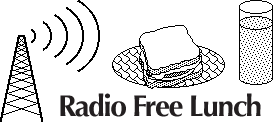Click To Flash is a simple plug-in for Safari that handles all Flash content — by not playing it until you click. This means you can visit web sites without running a handful of programs masquerading as ads. The problem is that many (if not most) Flash apps are extremely greedy in their use of the processor. This means the computer heats up, which means the fan runs louder. In fact, Elise’s machine appears to heat up to the point that it abruptly shuts down to prevent damage. And if you’re running on batteries, you run down the charge faster. Click To Flash simply shows the word “Flash” instead of running the app.
But what if you want to actually play a Flash game? That’s where the “Click to” comes in. Click on the blocked Flash content and it loads and runs.
Like I said, I had an older version that was functional, but doesn’t offer the ease of use for white listing sites, or a number of tweaks (such as using H.264 video on YouTube). I don’t know how I missed the update. You shouldn’t.
